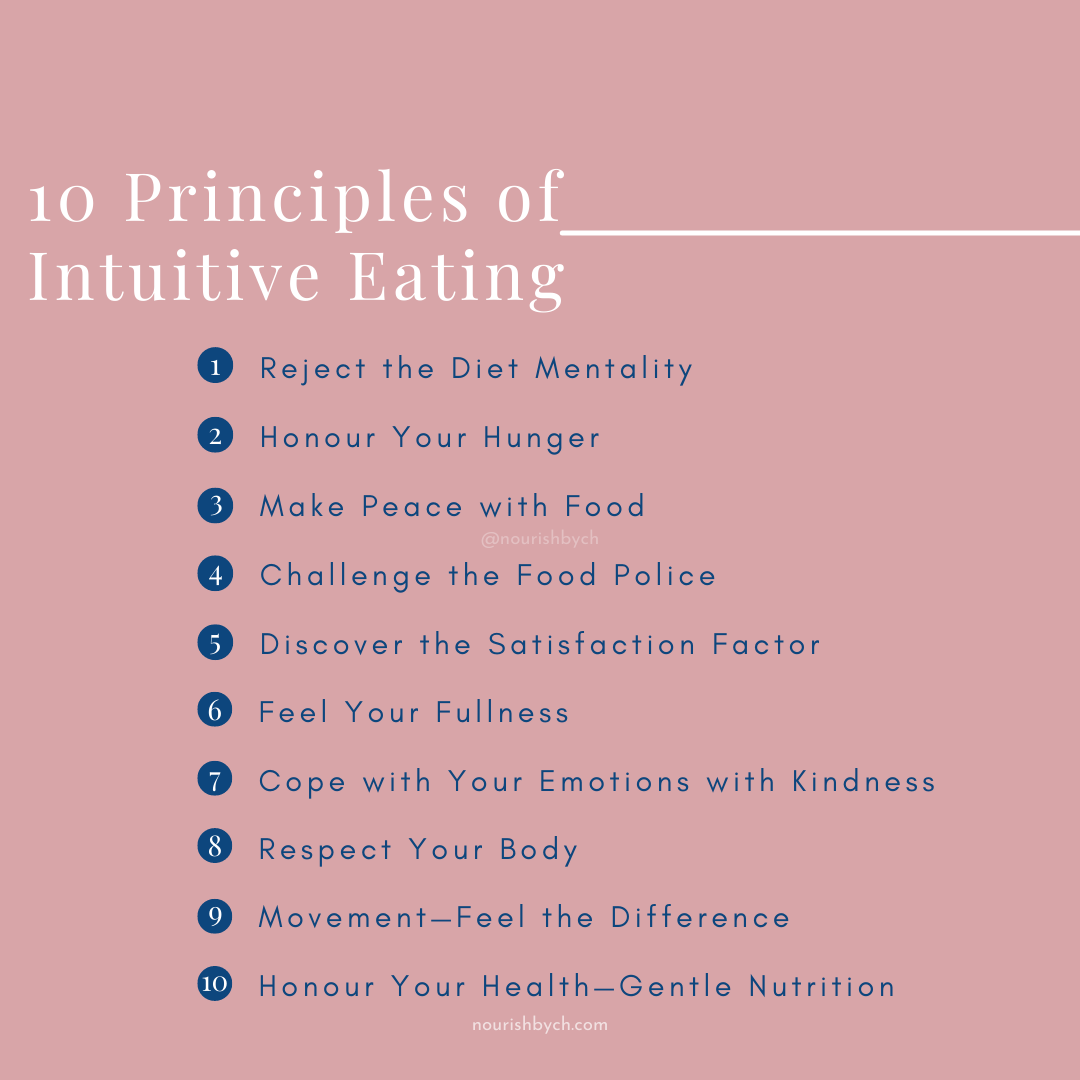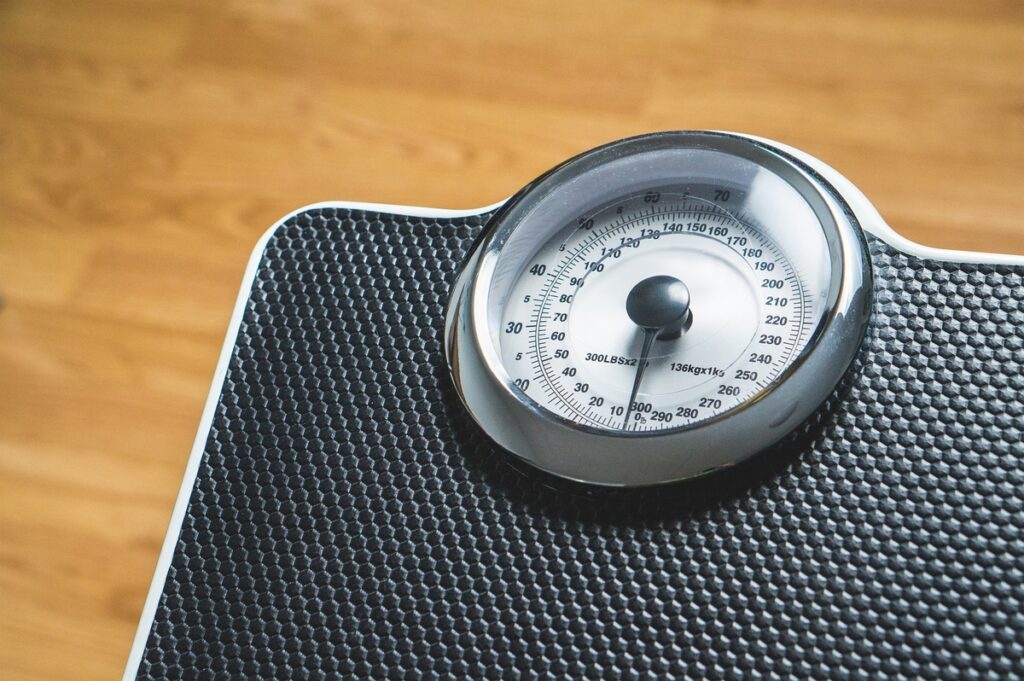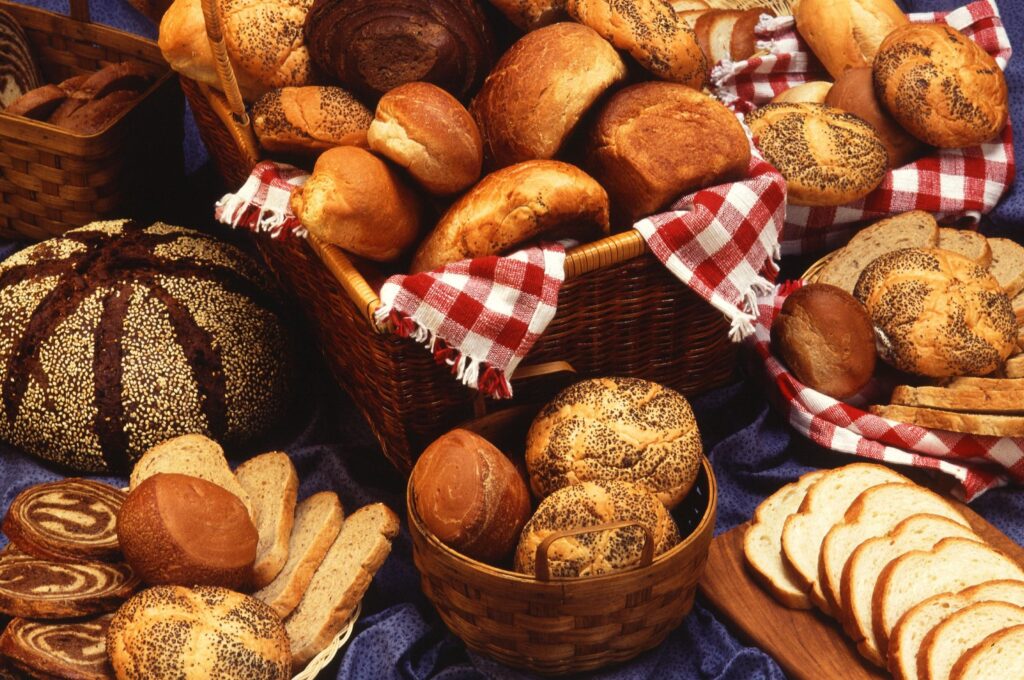Intuitive Eating isn’t just eating what you feel like when you feel like it, though some people think it is.
Many people question if it’s just another weight loss management programme too. With numerous apps like Noom and WW (Weight Watchers) promoting lifestyle change as a means to weight management, I can’t blame you for thinking this is just another of those movements!
To answer the question, we need to understand why weight is often targeted as a health marker to change over others.

Weight is a tricky subject – from the presumptions about being of an above-normal BMI to those who seek to influence while living in straight-sized (smaller) bodies for most of their lives. Weight can be an important marker of health and nutrition status, but it’s not the only one. That’s why non-diet (non-weight-focused) approaches like Intuitive Eating (IE) have grown in the last 3 decades.
IE is an evidence-based, weight-neutral health approach developed by dietitians Evelyn Tribole and Elyse Resch in 1995. It is guided by 10 principles, with validated assessment tools such as the Intuitive Eating Scale-2 and a growing body of scientific studies supporting this weight-inclusive approach to lifestyle change. It’s not a diet or magic pill.
Intuitive eating allows for adaptive dietary behaviours that promote eating in response to physiological hunger and fullness cues (internal) and increased physical activity, often referred to as “movement”. It’s been promoted within guidelines for cardiovascular health, especially after cardiac events by the American Association of Cardiovascular and Pulmonary Rehabilitation (AACVPR).
According to several studies, practising Intuitive Eating is linked to healthier lifestyle choices and may result in lower body-mass index (BMI) and positive psychological well-being. Numerous studies have reported strong and consistent associations between intuitive eating and body appreciation too. That’s saying a lot, as this approach does not primarily focus on weight, but rather on healing your relationship with food, body and movement.

Registered (associate) nutritionists and dietitians guide clients using the 10 principles of IE. These help by cultivating or removing challenges to body awareness which have been upheld by the multi-billion-dollar diet and weight loss industry and sadly, have been intertwined into public health messaging.
Much like going to therapy, practising Intuitive Eating does not mean you will morph into a holly-jolly fountain of body positivity after a few sessions. But it could mean you won’t let scare-mongering information about sugar, fats or “superfoods” ruin having a cupcake now and then.
A study by Jake Linardo and Sarah Mitchell showed that practising intuitive eating can lead to a lower risk of disordered eating behaviours and body image concerns (hang-ups about weight, body shape, reasons for exercise), in comparison to rigid dietary control (rules about what, when and how much to eat – external cues). Intuitive eaters were also more likely to experience body appreciation, unlike their counterparts following rigid dieting that consistently predicted disordered eating and negative body image.

So is it Mindful Eating?
Not exactly, and it makes sense why you may think it is. Some of the principles of Intuitive eating promotes mindful eating. Mindful Eating is a Buddhist practice of intentionally paying attention to your eating experience without judgment. Neither approach promotes specific eating patterns (diets), yet empowers you to reconnect with your inner cues to make decisions around eating and fully engage with the experience.
10 Principles of Intuitive Eating
- Reject the Diet Mentality
- Honour Your Hunger
- Make Peace with Food
- Challenge the Food Police
- Discover the Satisfaction Factor
- Feel Your Fullness
- Cope with Your Emotions with Kindness
- Respect Your Body
- Movement—Feel the Difference
- Honour Your Health—Gentle Nutrition
Can you lose weight while practising intuitive eating?
Short answer: It depends on your relationship with food and your body.

Intuitive Eating is not weight-centred. If you have a fixation on losing weight, it may not be for you.
Intuitive Eating is about evaluating and addressing your internalised food hang-ups and dieting rules. Truly neutralizing foods and enjoying the experience of eating plays a big role in how you start to notice internal hunger and satiety cues. For some that may mean weight gain, while for others fixing this relationship may mean they lose weight.
What about the Nutrition? Won’t I want to eat everything in sight and lose control?
Nutrition and regular exercise are critical for good health, but as I’ve recognised with my clients, those are not the only things to consider. Only you know what your hunger, fullness, and satisfaction feel like. Only you know your thoughts, feelings, and experiences involving food and your body. Despite what you’ve heard before about overeating “junk foods” when you practise being an intuitive eater, you will start to notice that those foods are no longer triggers. You will notice when they no longer provide the comfort your body needs or make you feel ill. Shocking right?!
One of our Diet Culture Dropouts had been fearful of visiting the baked goods aisle of the supermarket for years. Actively avoided bread because they thought it was horrible for their health, even though they loved toasted bread. After our session on forbidden foods, I challenged them to visit that aisle, choose an item and take it home. Initially, they were apprehensive. However, they soon recognised, that they could have sliced bread, croissants or baguettes in their cupboards without losing their ish and gorging themselves on it. This experience raised a bigger question to the client, “why was I avoiding this food before?”
Many times you are eating for more than nutrition. By falling out of diet culture, you can begin to feel more at ease with having macaroni pie, cookies, chips or insert whatever food you have been avoiding when you want, without thinking, “this will ruin my diet”. They really won’t! Intuitive Eating is a practice that supports a more holistic and mindful approach to health. It’s not another diet, there are no apps to track what you do every second of the day because it truly is about your relationship with your health.
For more information, you can reach out to a non-diet (intuitive eating-aligned) nutritionist like myself, or dietitian. I am preparing to host group coaching sessions soon on this, so my mailing list for updates.
References & Resources
Evelyn Tribole, Elyse Resch, 2020. Intuitive Eating A Revolutionary Anti-Diet Approach, 4th ed. St. Martin’s Essentials.
Thomas, L., 2019. Just Eat It – How intuitive eating can help you you get your shit together around food. Bluebird.
Evelyn Tribole, 2010. The Difference Between Intuitive Eating and Mindful Eating. The Original Intuitive Eating Pros. URL https://www.intuitiveeating.org/the-difference-between-intuitive-eating-and-mindful-eating/
Khalsa, A.S., Stough, C.O., Garr, K., Copeland, K.A., Kharofa, R.Y., Woo, J.G., 2019. Factor structure of the Intuitive Eating Scale-2 among a low-income and racial minority population. Appetite 142, 104390. https://doi.org/10.1016/j.appet.2019.104390
Linardon, J., Mitchell, S., 2017. Rigid dietary control, flexible dietary control, and intuitive eating: Evidence for their differential relationship to disordered eating and body image concerns. Eating Behaviors 26, 16–22. https://doi.org/10.1016/j.eatbeh.2017.01.008
Tylka, T. L., & Kroon Van Diest, A. M., 2013. The Intuitive Eating Scale-2: item refinement and psychometric evaluation with college women and men. Journal of counseling psychology, 60(1), 137–153. https://doi.org/10.1037/a0030893
Tsui, V., 2019. Mindful Eating & Intuitive Eating: What’s the Difference? Vincci Tsui, RD | Calgary Registered Dietitian. URL https://vinccitsui.com/blog/2019/01/mindful-eating-intuitive-eating/ (accessed 7.1.21).

